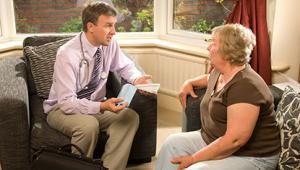24 March 2000
The pilot scheme in three areas, in which low priority 999 callers are transferred to the nurse-led helpline, will be extended to a further four pilot sites, while £1m will be invested in NHS Direct mental health services.
The phone line is available to around two-thirds of the population and is due to cover the whole of England by October. The on-line version will also be expanded.
These moves are likely to anger GPs, who are sceptical about the £70m initiative and argue it should be evaluated properly before it is expanded.
But health minister Gisela Stuart argued that the study showed that the helpline had proved its worth.
Ministers had hoped that NHS Direct would cut the number of patients attending casualty departments but the Sheffield University study, published to mark the service's second birthday, found that it had no effect on demand for ambulances or care in A&E departments. On 24,000 occasions NHS Direct called out an ambulance for patients who would not have done so.
The extension of the pilot – where low-priority category C calls are transferred to NHS Direct – is a first step to relieving the pressure on ambulance services, many of which are struggling to meet response time targets because of the number of calls.
PFmar2000


















